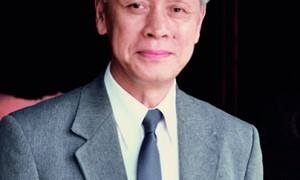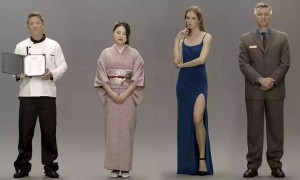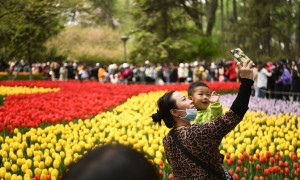It was not homesickness he felt, as he shifted his bags and wrote his poems, producing a dozen volumes by the end. Nostalgia was lazy, futile. What he felt was that his will had been broken and replaced by simple anger.
他一边四处漂泊,一边进行诗歌创作,最后写出了十多本诗集时,他感受到的并不是思乡之苦。怀旧是懒惰、徒劳的。他觉得自己的意志被摧毁,取而代之的只有愤怒。
And the question was how to express it, as a poet. He did not want to write in the classical Arab style; he had come to Cairo deliberately to keep off the mapped road. Nor did he want to shout for intifada; his ways were quieter. For a while, in Cairo and Beirut, he worked for Radio Palestine, but the bombast and sloganeering of politics repelled him.
作为一名诗人,问题是如何将这种情绪表达出来。他不想用古典的阿拉伯风格写作;他特意来到开罗,不想按照既定的套路写作。他也不想为起义军站台;他的生活方式更加安静。他曾在开罗和贝鲁特为巴勒斯坦广播电台工作过一段时间,但他对政治的夸夸其谈和口号感到厌恶。

As a lover of freedom, he could not join a party or pledge allegiance to anyone: all you need to make a tyrant, he wrote, “is a single bend of the knee”. He hated Israel, the occupier, who had taken what was his and covered it with smart white settlements; but he also loathed the Palestinian parties, Fatah, riddled with corruption, and Hamas, naively peddling myths of power.
作为一个热爱自由的人,他无意加入什么政党,也不会向任何人宣誓效忠:他写道,要造就一个暴君,“只需单膝下跪”。他憎恨占领者以色列,他们夺走了属于他的国土,在土地上盖起了扎眼的白色建筑;但他也憎恨巴勒斯坦政党,法塔赫的内部已经腐败不堪,而哈马斯天真地兜售权力的神话。
In 1999, working briefly for the Palestinian Authority in Ramallah, he tried to blow the whistle on the siphoning-away of funds for a World Bank project. He resigned when he made no impression.
1999年,在拉姆安拉的巴勒斯坦权力机构短暂工作期间,他试图揭发世界银行项目资金被挪用的丑闻。举报无果后,他就辞职了。
His poems had to speak instead. He wrote them as a deliberate contrast to the frothing politicians, simple, concrete, cooled down. He kept his gaze on everyday things, ordinary pleasures and troubles: leading the reader to a window, leaving him to look out. He did not write about blood, rifles, the nation, the word “Palestine”. That pain would appear, he felt, even when he described a forest or a flower—or a small tear in a shirt, which a jailer might have made.
他只能用作品表达。他创作诗歌是为了刻意与那些浮躁的政客形成对比,简单,具体,冷静。他时常关注日常的事物,普通的快乐和烦恼,把读者引到窗前,让读者自己欣赏。他不会写关于鲜血、步枪、国家(“巴勒斯坦”这个词)。即使描写了一片森林或一朵鲜花,或者可能是狱卒把衬衫弄破了一个小洞,他也会把那种痛苦通过笔端表达出来。
As for his own uprooting, “I rubbed the leaf of an orange in my hands/As I had been told to do/So that I could smell its scent/but before my hand could reach my nose/I had lost my home and become a refugee.”
至于自己“背井离乡”,他写道:“前辈曾告知,欲闻橘香气,双手搓橘叶,然尚未触鼻,故土已陷落,此后无根基。”







